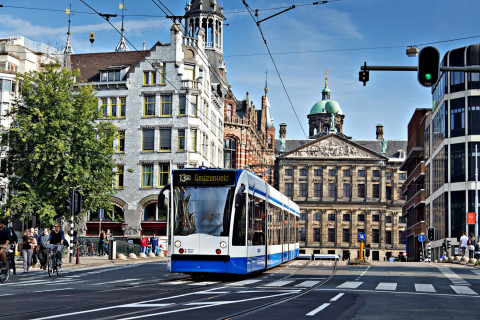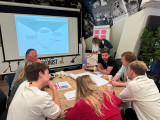Hoe maken we het verkeer in Amsterdam uitstootvrij? Op te veel plekken in Amsterdam is de lucht nog steeds sterk vervuild. Dit heeft gevolgen voor zowel inwoners als bezoekers van de stad. Daarom vragen wij ons af; hoe maken we Amsterdam écht uitstootvrij? Schoner verkeer is hierbij een voor de hand liggende eerste stap. Elektrisch rijden gebeurt steeds meer, maar is dit genoeg? Is 100% elektrisch ook écht emissievrij, en is dat hetzelfde als écht duurzaam? En welke stappen kunnen we maken in het openbaar vervoer? Met onder andere Alexandra van Huffelen (directeur GVB) en Marjolein Demmers (directeur Natuur & Milieu) gaan we op zoek naar de duurzame toekomst van het Amsterdamse verkeer.
Schone lucht voor iedereen





